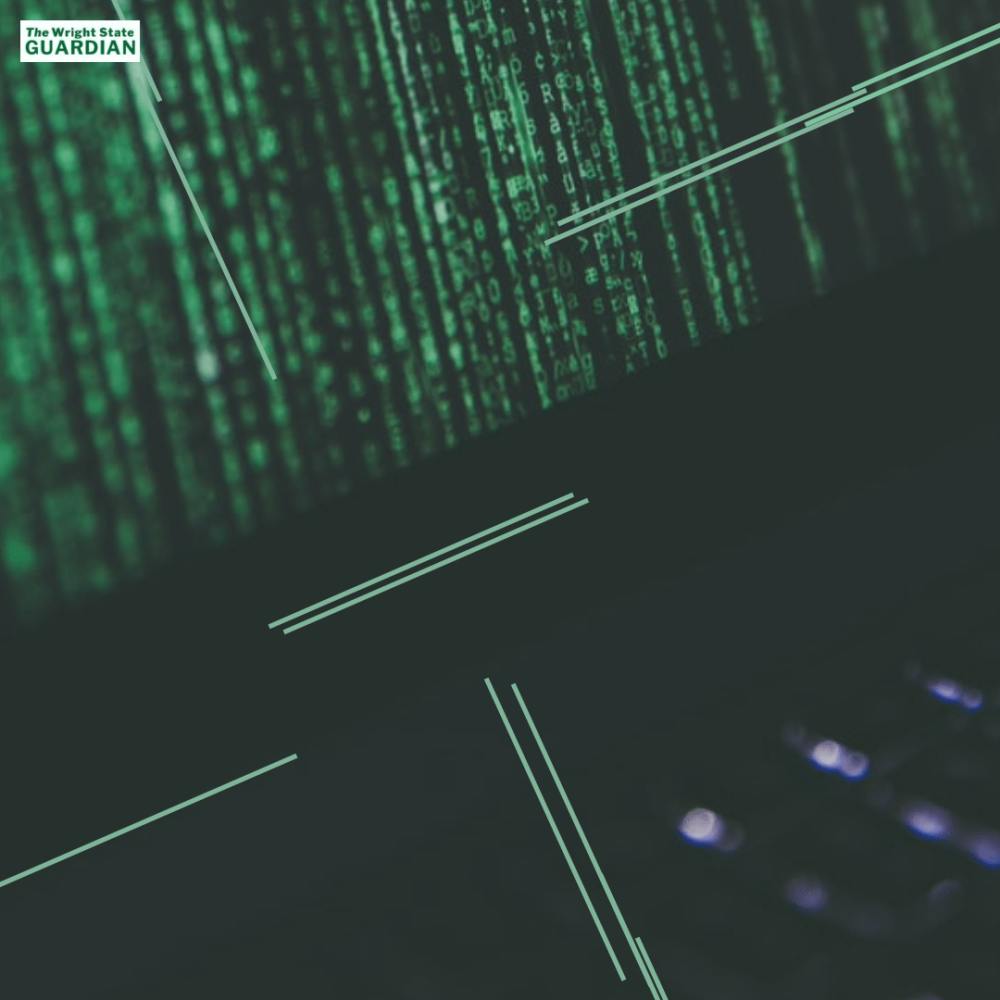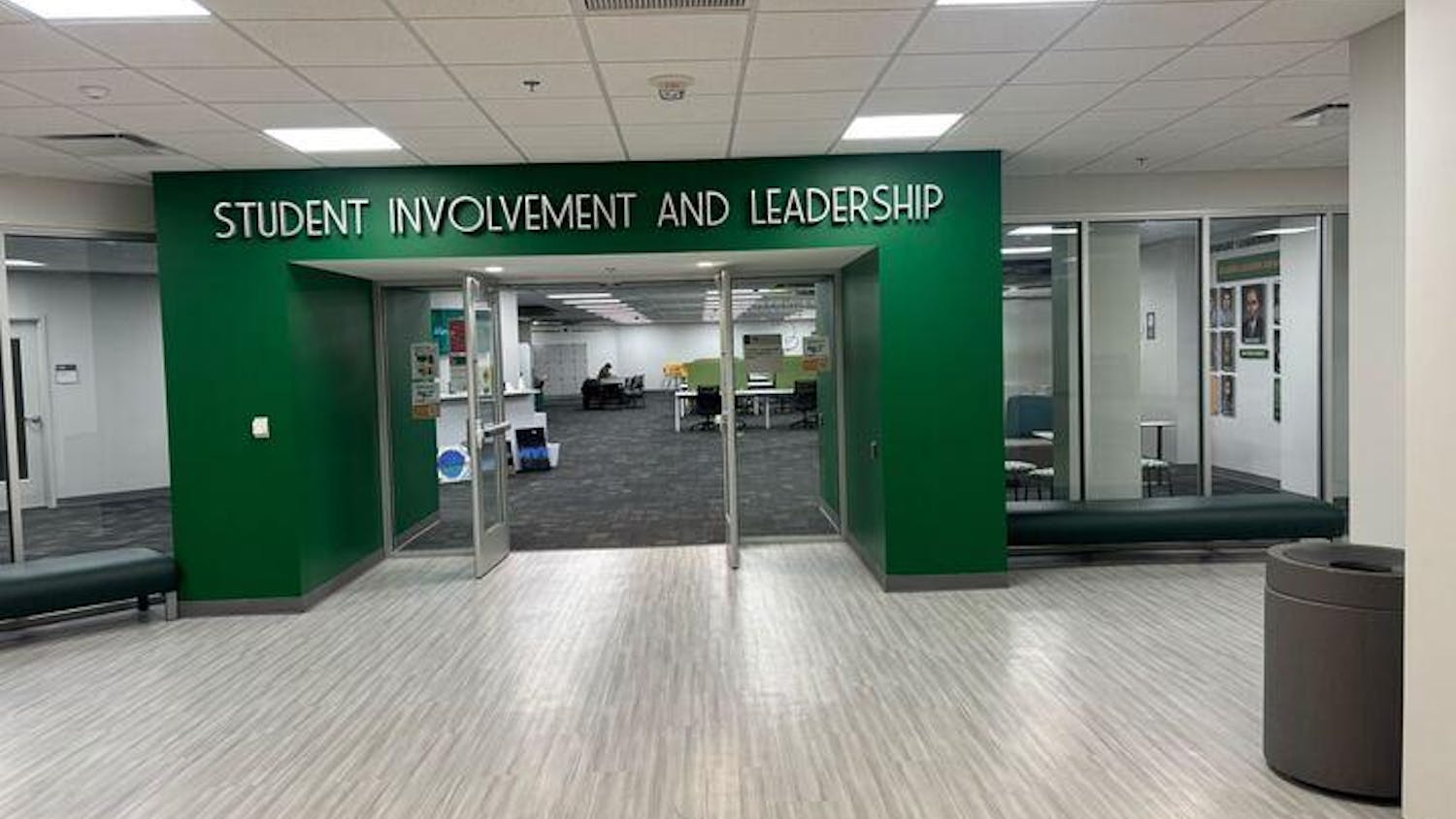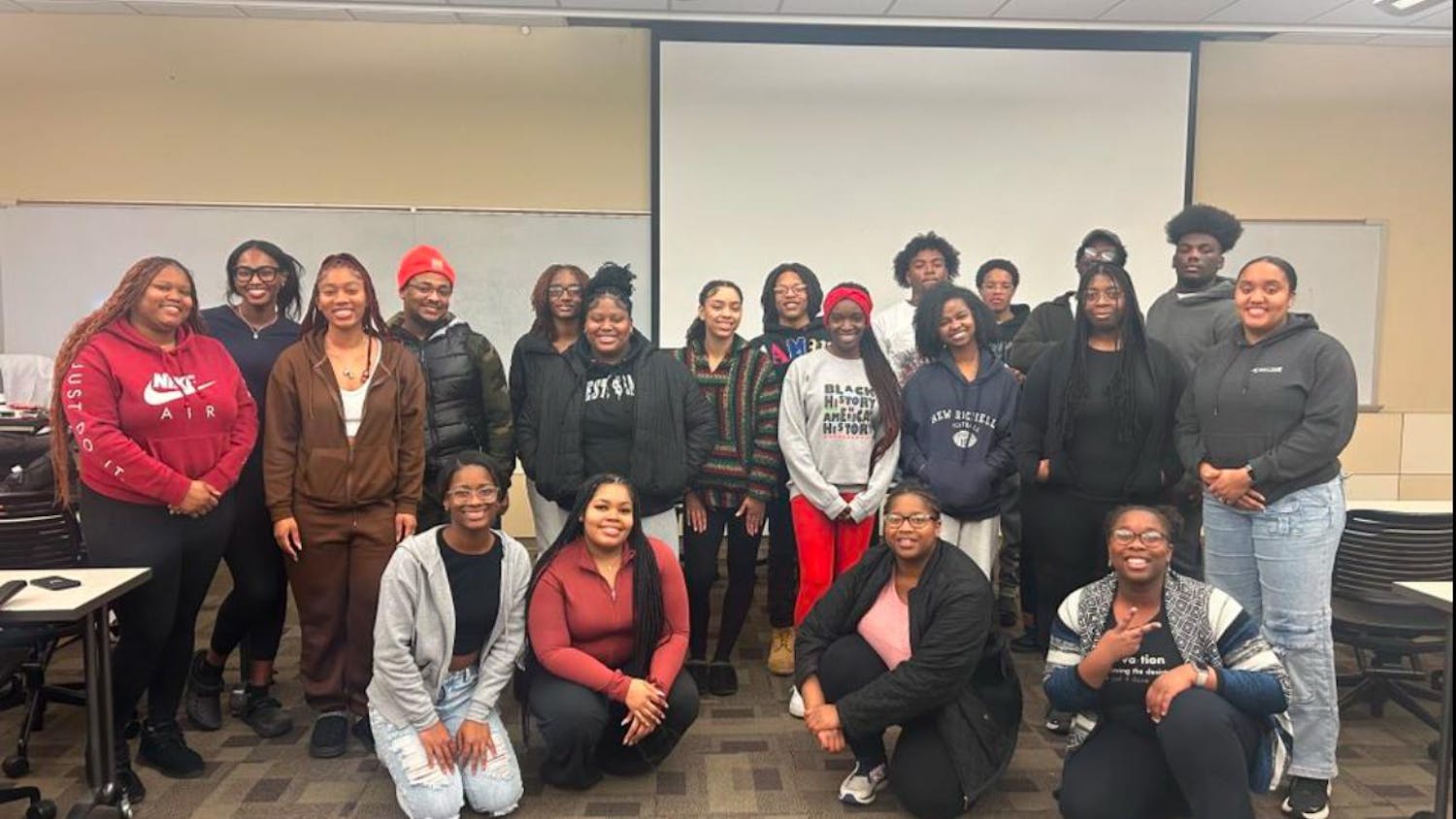A.I and Technology | Graphic by Arden Reimer | The Wright State Guardian
National Academic Integrity week at Wright State University brought informational events, insight into the academic integrity policy and the next steps regarding artificial intelligence.
Procedure
Jan. 30 brought forth National Academic Integrity Week, a national week of awareness for academic integrity.
According to the International Center for Academic Integrity, over 60% of university students freely admit to cheating in some form.
WSU assistant director of community standards and student conduct Jonathan Blount defines breaking academic integrity as anytime a student uses intellectual property from other people and uses it for personal work. Blount conducts cases for students that have alleged violations of academic integrity, presentations on academic integrity, resident assistance training and other related business to the world of academic integrity.
Despite the alarming statistics, Blount claims that true academic integrity violations are few at WSU, with most occurring at the graduate level in the fields of computer science and engineering.

However, if a student is suspected of violating academic integrity, the student will go through the process outlined in Policy 3710.
“I’d like to emphasize we don't see a lot of academic integrity violations, which I think is a good thing. I think it speaks to the morals and ethics of our students and their determination to get a good education and actually be educated rather than just checking a box,” Blount said.
Artificial Intelligence
English language and literature professor Dr. Crystal Lake has rarely experienced academic integrity violations with students and is not concerned with the rise of artificial intelligence in the academic sphere. Lake mentioned ChatGPT, a computer program that models dialogue and conversation.
“I actually think that professors don’t need to worry too much about [ChatGPT],” Lake said. “But, I think that I can also see that the [ChatGPT] struggles to convey really complicated concepts, and sometimes it hasn’t been in class, so it doesn’t know what particular perspectives I’m hoping students will have on the things that we study or read.”
Lake also views artificial intelligence as more of a tool than a hindrance for things such as grammar, essay structure and key concepts and believes professors are able to create assignments that students have to complete without artificial intelligence.
Blount also is not very worried about artificial intelligence being used as a tool in breaking academic integrity, asserting that, in the coming months, there will be technology to counteract potential violations.
Alan Knowles, instructor of professional and technical writing, teaches an upper-level English course about artificial intelligence and writing.
Knowles asserts that, much like how professors altered courses when word processors began checking spelling, professors will change courses to adapt to artificial intelligence in writing; however, there is still the ethical concern about plagiarism.
While Knowles clarifies that the writing generation by artificial intelligence based on a prompt itself is not plagiarism, writers using artificial intelligence “spin” the work of already existing work is plagiarism.
“What [writers] do is they'll do a Google search for a topic, and they'll find a top ranking blog for that topic,” Knowles said. “The person using the [artificial intelligence] at the moment, without contributing any extra ideas or content or research to that blog post, will just rephrase everything in it, and then they will copy it and paste it to their own blog site and get it to rank higher than the original.”
The Office of Community Standards and Student Conduct is currently considering more in-depth discussions about how artificial intelligence will influence and change academia.












